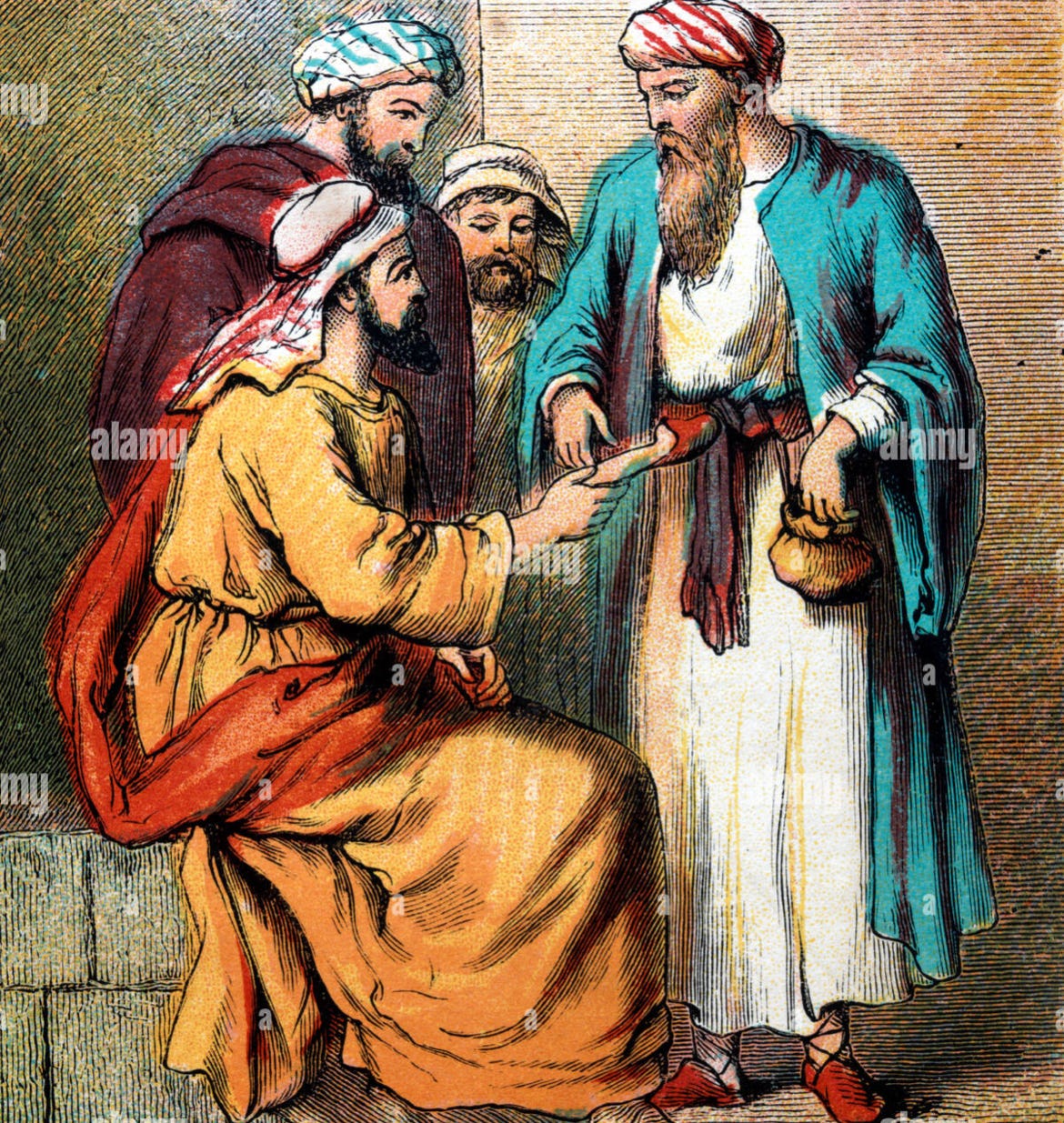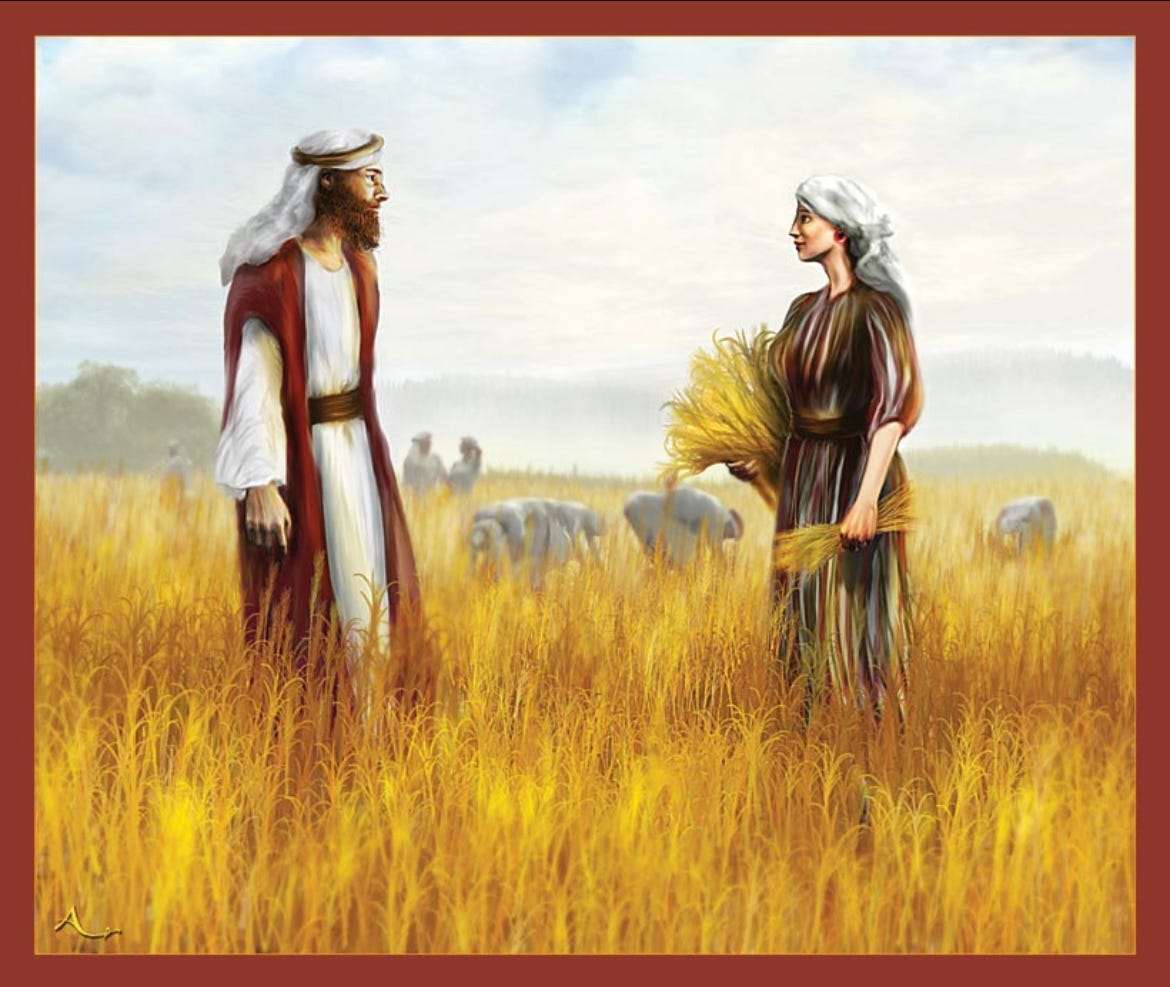To do this we need to look at an ancient custom of their time, something that is strange to our modern sensibilities.
To do this well I believe we need to begin by reading a section out of Moses’s final instructions to the newly forming nation of Israel before they enter the Promised Land found in the ancient scroll we now know as the book of Deuteronomy.
Laws Concerning Levirate Marriage
If brothers dwell together, and one of them dies and has no son, the wife of the dead man shall not be married outside the family to a stranger.
Her husband's brother shall go in to her and take her as his wife and perform the duty of a husband's brother to her. And the first son whom she bears shall succeed to the name of his dead brother, that his name may not be blotted out of Israel.
And if the man does not wish to take his brother's wife, then his brother's wife shall go up to the gate to the elders and say, ‘My husband's brother refuses to perpetuate his brother's name in Israel; he will not perform the duty of a husband's brother to me.’
Then the elders of his city shall call him and speak to him, and if he persists, saying, I do not wish to take her,’ then his brother's wife shall go up to him in the presence of the elders and pull his sandal off his foot and spit in his face. And she shall answer and say, ‘So shall it be done to the man who does not build up his brother's house.’
And the name of his house shall be called in Israel, ‘The house of him who had his sandal pulled off.’
Deuteronomy 25:5-10 (ESV)
What does all of this mean?
Back then, survival of the strength of this particular nation depended on ownership of the family’s land. It was not to be lost through acquisitions by wealthy strangers taking advantage of those who had fallen into poverty. For this reason God established a law where those who were related to this impoverished family could legally redeem the land on their behalf. But it had to be done publicly. There was a way where someone known as a Kinsman Redeemer could step in. This was the process Boaz would use to save Naomi and Ruth.
Boaz Redeems Ruth
Now Boaz had gone up to the gate and sat down there. And behold, the redeemer, of whom Boaz had spoken, came by.
So Boaz said, “Turn aside, friend; sit down here.”
And he turned aside and sat down. And he took ten men of the elders of the city and said, “Sit down here.” So they sat down.
Then he said to the redeemer, “Naomi, who has come back from the country of Moab, is selling the parcel of land that belonged to our relative Elimelech. So I thought I would tell you of it and say, Buy it in the presence of those sitting here and in the presence of the elders of my people.’ If you will redeem it, redeem it. But if you will not, tell me, that I may know, for there is no one besides you to redeem it, and I come after you.”
And he said, “I will redeem it.”
Then Boaz said, “The day you buy the field from the hand of Naomi, you also acquire Ruth the Moabite, the widow of the dead, in order to perpetuate the name of the dead in his inheritance.”
Then the redeemer said, “I cannot redeem it for myself, lest I impair my own inheritance. Take my right of redemption yourself, for I cannot redeem it.”
Now this was the custom in former times in Israel concerning redeeming and exchanging: to confirm a transaction, the one drew off his sandal and gave it to the other, and this was the manner of attesting in Israel.
So when the redeemer said to Boaz, “Buy it for yourself,” he drew off his sandal. Then Boaz said to the elders and all the people, “You are witnesses this day that I have bought from the hand of Naomi all that belonged to Elimelech and all that belonged to Chilion and to Mahlon. Also Ruth the Moabite, the widow of Mahlon, I have bought to be my wife, to perpetuate the name of the dead in his inheritance, that the name of the dead may not be cut off from among his brothers and from the gate of his native place. You are witnesses this day.
Ruth 4:1-10 (ESV)
Again, as I have said in earlier posts, this is a story of good people acting in selfless ways to bless others more than themselves. The net result of this is that they were all blessed in the process.
Boaz married Ruth and they had a baby boy.
Ruth and Boaz Marry
So Boaz took Ruth, and she became his wife. And he went in to her, and the LORD gave her conception, and she bore a son.
Then the women said to Naomi, “Blessed be the LORD, who has not left you this day without a redeemer, and may his name be renowned in Israel! He shall be to you a restorer of life and a nourisher of your old age, for your daughter-in-law who loves you, who is more to you than seven sons, has given birth to him.”
Then Naomi took the child and laid him on her lap and became his nurse. And the women of the neighborhood gave him a name, saying, “A son has been born to Naomi.” They named him Obed. He was the father of Jesse, the father of David.
The Genealogy of David
Now these are the generations of Perez: Perez fathered Hezron, Hezron fathered Ram, Ram fathered Amminadab, Amminadab fathered Nahshon, Nahshon fathered Salmon, Salmon fathered Boaz, Boaz fathered Obed, Obed fathered Jesse, and Jesse fathered David.
Ruth 4:13-22 (ESV)
In Conclusion
God can be trusted to do wonderful things for you just as he did for those we have read about in this wonderful little book.
This is the good news. It is the GOSPEL projecting out from The Book of Ruth just for you.





Thank you for this great series on Ruth. There were so many lessons that we can apply to our lives today. God Is so good. He loves us and wants the best for us. He sent His son Jesus Christ, so that we might accept him as savior and live in response to this love.